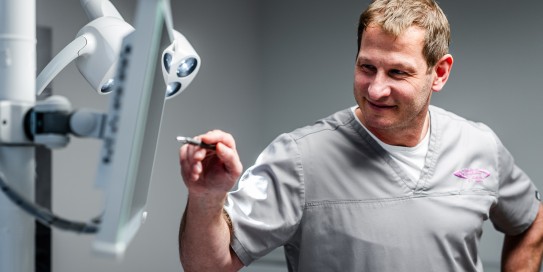
Metals in dentistry: effects on the body
06.02.2025
The use of metals in dentistry can have significant effects on the body.
Certain metals such as mercury, gold, platinum, copper, titanium and chromium can have a toxic effect, influence the immune system and are associated with chronic diseases. Here you will find the most important information at a glance.
Amalgam: poison in the mouth
Amalgam consists of over 50% mercury, one of the most toxic non-radioactive elements on earth. It is still used in many dental practices, even though it is known to be harmful to health. Everyday activities such as chewing or hot drinks release mercury vapors that can enter the body and build up in organs such as the liver, kidneys and brain. Pregnant women, breastfeeding mothers and children are particularly at risk. Studies show that amalgam is the main source of mercury pollution in the human body.
Conclusion: Amalgam should be removed and replaced with compatible materials.
Titanium implants: An underestimated challenge
Titanium is often used for dental implants, but can cause inflammation or allergic reactions in many people. Studies show that titanium particles are released by corrosion and can cause local and systemic inflammation. These chronic reactions can lead to bone resorption, implant loss and even autoimmune diseases. In many cases, all-ceramic implants are a better alternative.
Conclusion: A titanium compatibility test can help to avoid problems in advance.
Other metals in dental alloys
Metals such as gold, palladium or nickel are also found in dental materials and can cause similar problems. These metals can activate the immune system and trigger inflammatory or allergic reactions. In addition, different metals in the mouth create a so-called battery effect, in which electrical currents flow, intensifying corrosion and releasing further metal ions.
Conclusion: A holistic diagnosis can help to identify incompatible materials.
Electrosensitivity and metals in the mouth
Metals act like small antennas and amplify electromagnetic fields, such as those created by Wi-Fi or mobile phones. This can disrupt the nervous system and trigger symptoms such as concentration problems, insomnia or palpitations. Titanium implants in particular can cause the surrounding tissue to heat up due to microwave radiation.
Conclusion: Metal-free alternatives can significantly reduce the risk of electrosensitivity.
Why is metal removal advisable?
Metals can disrupt the metabolism, promote inflammation and put a permanent strain on the immune system. Removing metals from the oral cavity is a key step in alleviating chronic complaints and improving well-being. It is important that this is done under strict protective measures.
Conclusion: A biological dentist can help to identify and remove incompatible metals in order to protect your health in the long term.
Other articles that might interest you:
Anxiety-free visits to the dentist: treatments with empathy and trust
Find out here how we can guide you through your next appointment stress-free.Diabetes and periodontitis - an interaction with consequences
Around 10% of the population in Germany is affected by diabetes.Nutrition and wound healing: how your diet can support healing
Read here how you can support your body with the right diet.
Praxisurlaub
Liebe Patienten:innen,
Unsere Praxis bleibt vom 25.08. bis zum 07.09.25 geschlossen.
Ab dem 08.09.25 sind wir wieder wie gewohnt für Sie da.
Bleiben Sie gesund!
Ihr Praxisteam



